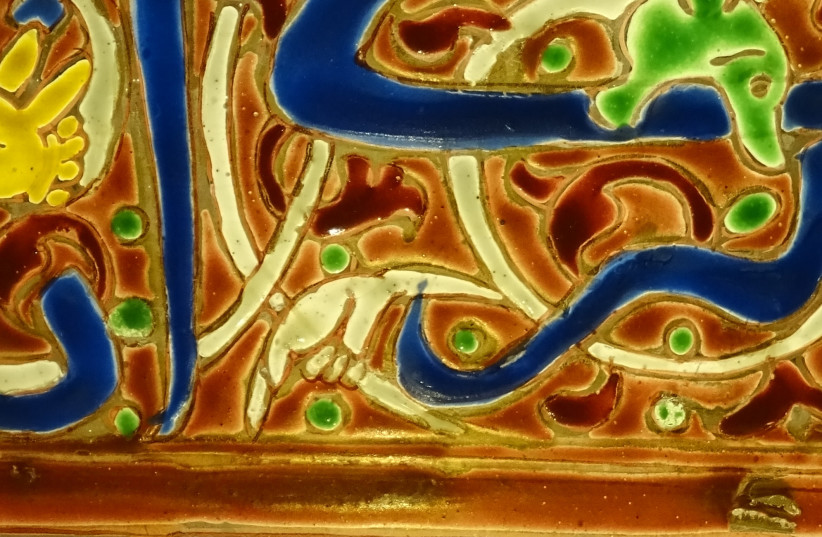Three glass fragments discovered at Caerlaverock Castle in Scotland in the late 1990s have sparked the establishment of a community project called Eternal Connections, which fosters discussion and learning around Scotland's Muslim Communities.
“It’s very rare to find it being used for window glass in castles and tower houses at this time – this happened a couple of hundred years later."
Stefan Sagrott, Archaeologist and Senior Cultural Resources Advisor from Historic Environment Scotland
"Discovering Islamic glass from the 13th century in a Scottish castle, is an absolutely astounding find. Glass wasn’t commonly used at this time. It was used for stained glass windows in monasteries, cathedrals and some smaller churches and chapels," explained Stefan Sagrott, archaeologist and Senior Cultural Resources Advisor from Historic Environment Scotland (HES). “It’s very rare to find it being used for window glass in castles and tower houses at this time – this happened a couple of hundred years later."
The glass is the first archeological find of its kind and it is believed, according to the HES, that the original vessel it was part of would have been made in Syria, Iraq or Egypt in the 12th or 13th century. The fragments are inscribed with an Arabic word which was likely one of the 99 names of Allah.
Visual artist Alice Martin researched contemporaneous medieval Islamic glasswork, working closely with experts from HES. They analyzed the glass fragments and used cutting-edge techniques to produce 3D models and get a solid understanding of the shape of the original piece - it appears to have been a small drinking beaker.

“There wouldn’t be many vessels or objects made from glass either, and if people did have them, they don’t tend to survive today," Sagrott explained. "Glass degrades quickly when it’s in acidic soil, which is found a lot in Scotland. So, we’re always going to lose evidence of it.”
The Eternal Connections project
“The purpose of the Eternal Connections project has been to engage with wide-ranging audiences to celebrate our shared cultural heritage - using advanced scientific and digital techniques made this possible," said Dr. Lyn Wilson, Head of the Program for Research & Climate Change at HES.
The Eternal Connections project worked with local groups such as the Muslim Scouts in Edinburgh and the Glasgow Muslim Women's Resource Centre to organize workshops centered around the story of the glass shards. Specifically, the workshops focused on the shape of the original beaker, and its design, as well as the archeology and tech used in the fragments' analysis.
Aisha Qadar, Cub Section Leader for the 8th Braid Salaam Scouts in Edinburgh commented: “The Eternal Connections project was a hugely worthwhile experience. Our Cubs, Scouts and Venture Scouts thoroughly enjoyed learning about the connection between Scottish heritage and their Islamic identity. The fact there is a connection that goes back 800 years here in Scotland gives us a real sense of belonging.”
Many of the women involved in Eternal Connections who helped HES in their research are unable to work and generally participate in UK society due to the UK asylum system, according to Vicky Mohieddeen who ran Eternal Connections workshops at the Muslim Women's Resource Centre. So, allowing them the opportunity to make a meaningful contribution to a cultural and historical initiative has had a significant impact.
